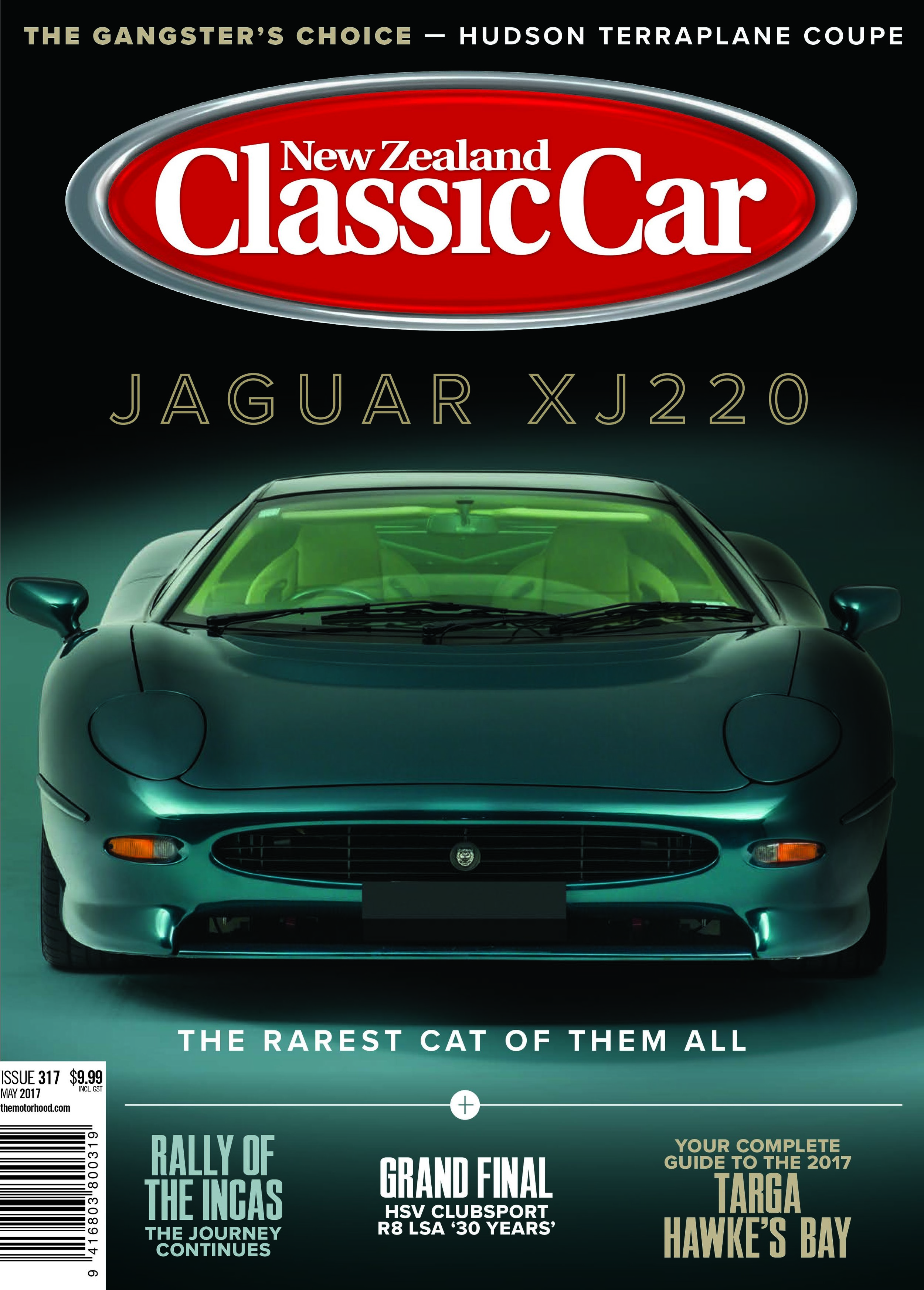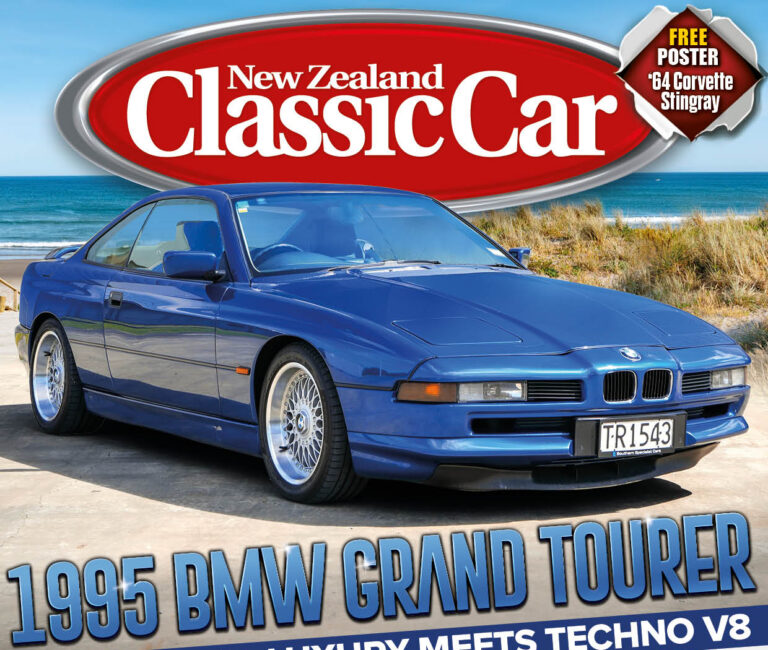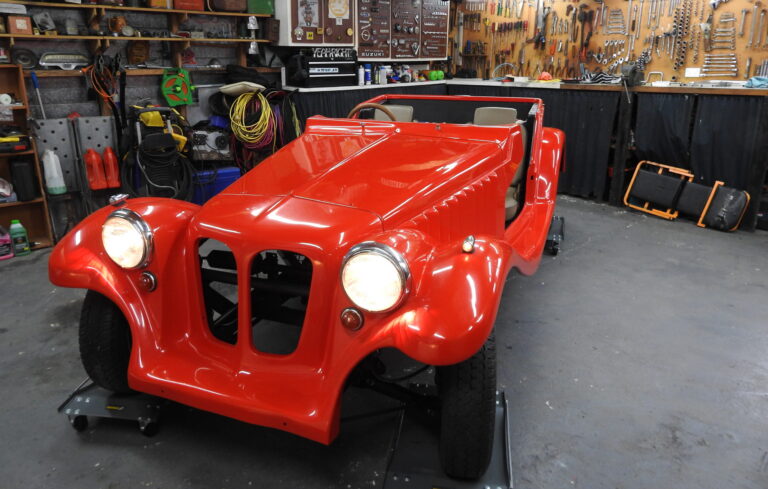Hate to see you go — love to watch you leave.
We drive the final ClubSport ever to roll off the production line
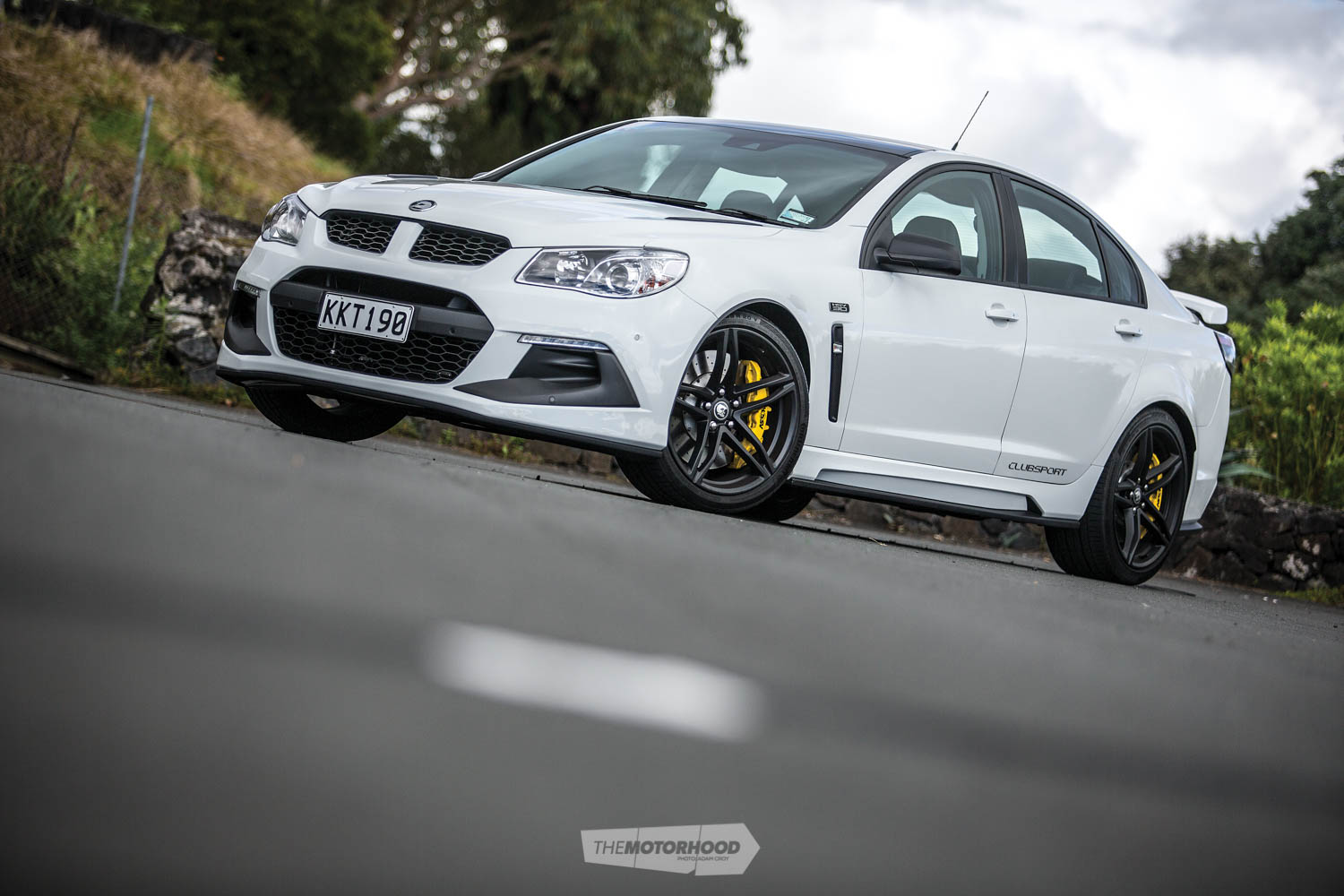
There has been much written and said about the demise of the Aussie car industry. There is no denying that it’s a damn shame. We farewelled the Falcon late last year and, as we prepare to do the same to the Commodore, we turn the spotlight onto its performance partner, Holden Special Vehicles (HSV). What will become of one of our favourite tuning houses? Does the end of the Commodore mean the end for HSV, too?
Short answer: no. HSV is remaining tight-lipped about the guise of the next-generation HSV and, instead, is concentrating on giving the much-loved Commodore platform the send-off it deserves.
To mark this monumental changing of the guard, as well as the 30th anniversary of the HSV brand, it has pulled out all the stops to ensure that its ocker swansong is the best ever. The formula is familiar: order a spec Commodore from Holden; sprinkle it with a bunch of go-fast, stop-faster, and look-good bits; and sell.
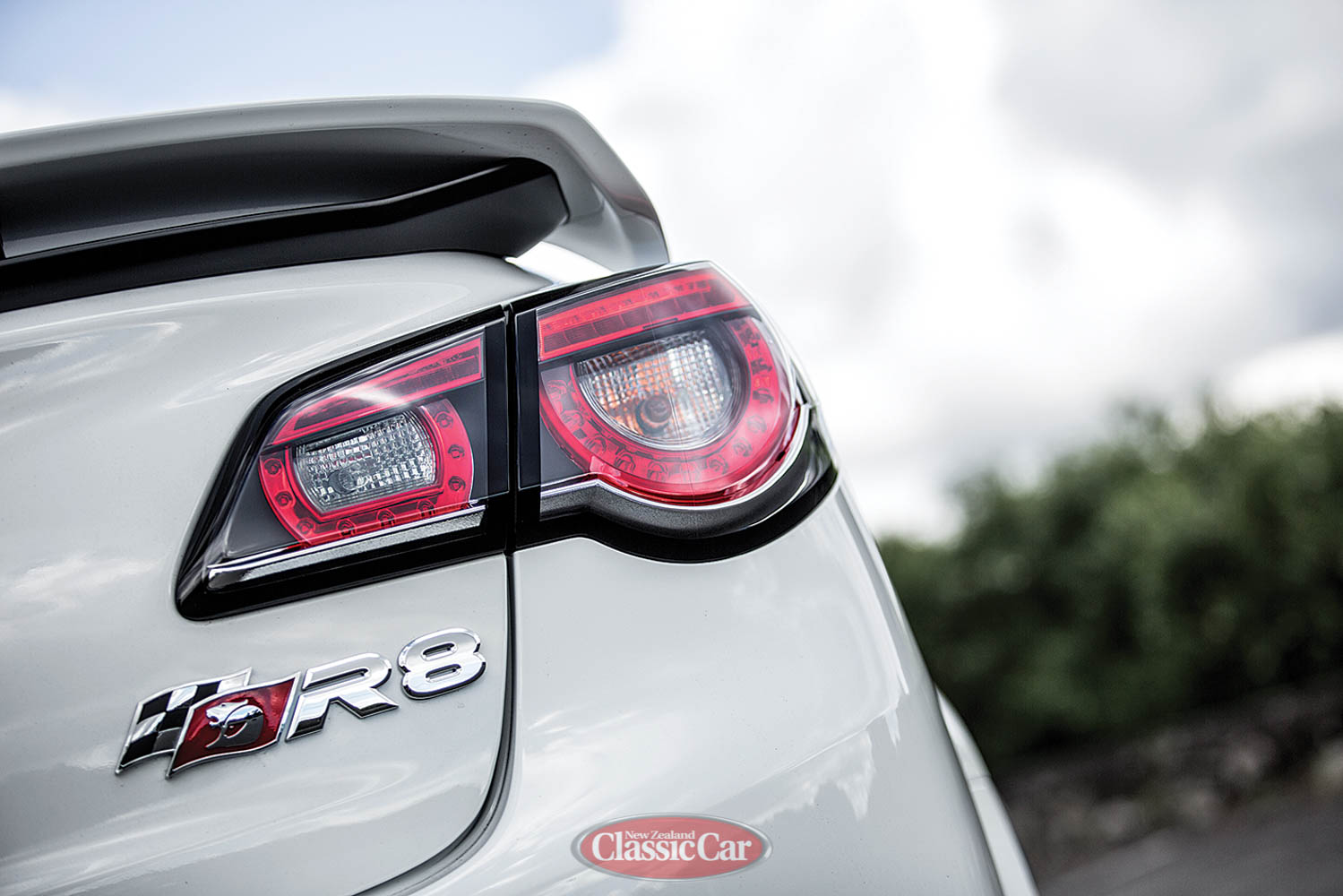
R8ing the performance
Following a successful outing in the previous VF2 (‘Gen F1’, in HSV-speak), the LSA is being rolled out to power the new ClubSport R8, although, this time, the wick has been turned up a bit. The supercharged 6.2-litre engine now puts out 410kW (550hp) and 691Nm — the GTS sticks at the phenomenal figures of 435kW (583hp) and 740Nm from the same engine. To assist with cooling this grunt, the R8 is fitted with a stacked-plate engine-oil cooler and a stand-alone water-to-air charge-air cooling system fed via some serious-looking vents and a redesigned front bumper and diffuser set-up. The standard brakes are a Nascar-inspired and -designed four-pot system developed with the LSA power in mind.
That stunning supercharged scream only the LS engines can provide now sends the big sedan from zero to 100kph in 4.6 seconds, and down the quarter-mile in 12.7 seconds.
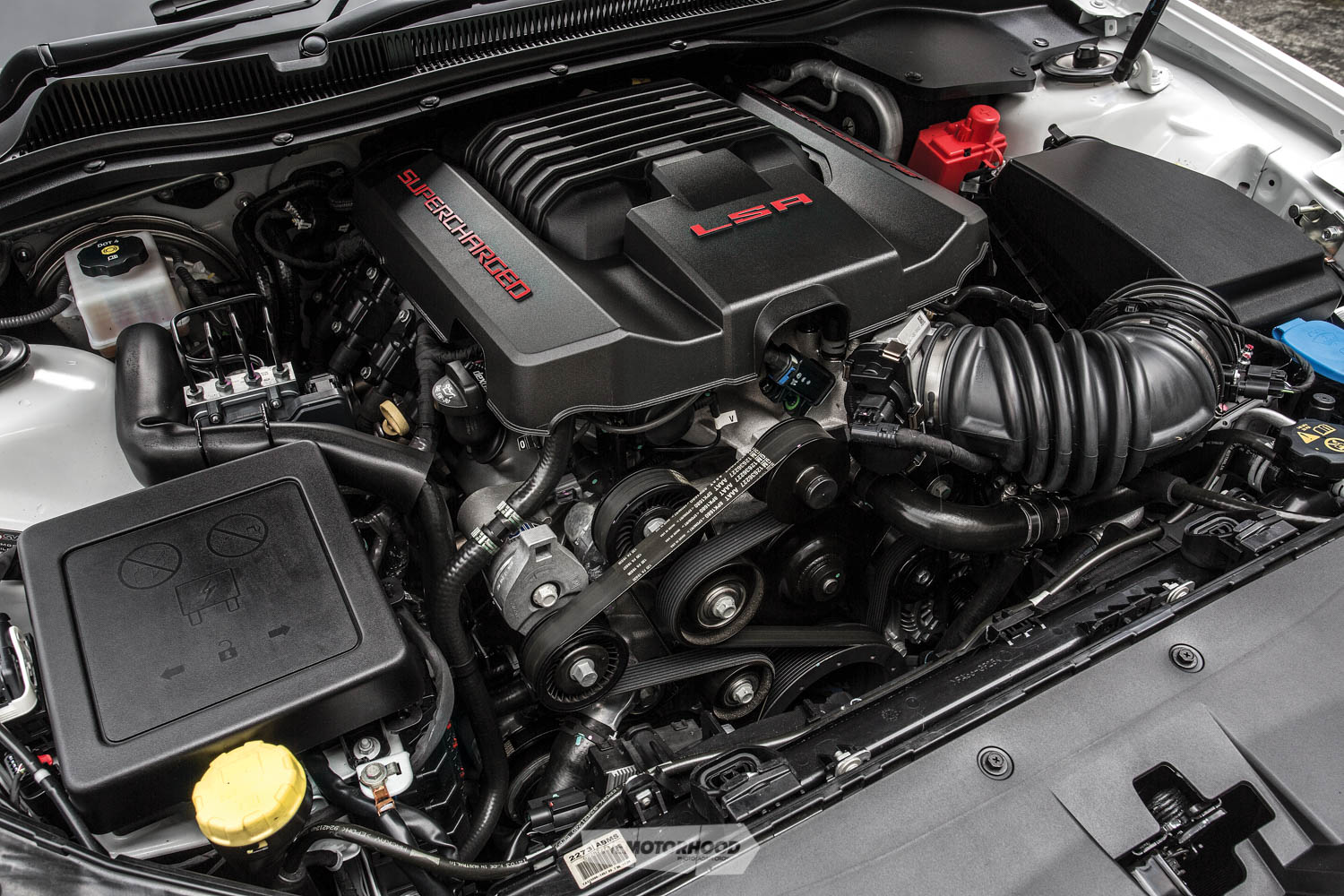
The belly of the beast
With great power comes great responsibility, so, of course, there is the requisite traction control incorporated into the electronic stability control (ESC), as well as other trick technology, including lane-departure warning, automatic park assist, hill-start assist, and magnetic ride control — all without the gremlins of earlier generations. Now standard across the HSV range are side-impact warnings on the wing mirrors and a forward-collision warning for when the guy in the rental Getz travelling at 70kph in the fast lane on the motorway gets a bit too close to your front bumper.
Torque vectoring uses the ESC system to detect when the vehicle is starting to understeer and helps to correct it. The system operates by transferring torque across the rear axle from the inside wheel to the outside wheel while cornering and accelerating, thereby causing a ‘rotational moment’, acting on the body and helping to get the car through the corner.
Comfort for driver and passengers is something we expect from any big Holden or HSV car, and the R8 hits the nail on the head. While the seats are big enough to hold those of us who have been making the most of the BBQ and beer fridge all summer, they also provide support enough through the bends to ensure that you’re not flung across the cabin.
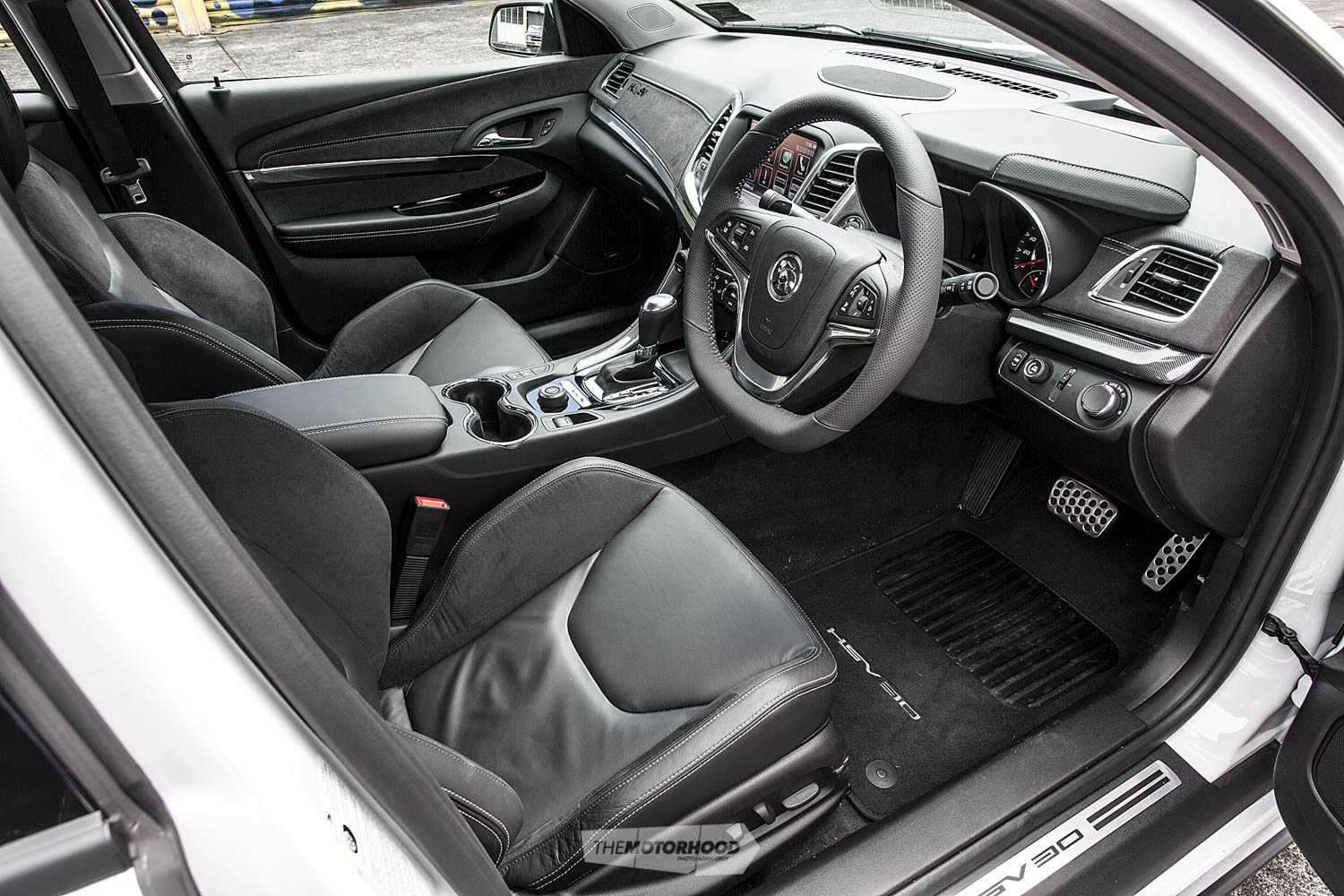
Reporting for duty
HSV recognizes that this car will mostly be used for daily duties such as towing the boat, long-weekend road trips with the family, and sitting on motorways with the masses. The R8 LSA attends to these roles easily and well. In traffic, the electric steering is light enough in Performance mode not to be a burden, and the ride is comfortable and forgiving of bad surfaces. We understand a terrific torque curve provides excellent towing capability and stability, certainly aided by the wider track of this second-generation VF.
Once the boat is in the shed and the kids are someone else’s problem, you have an opportunity to turn your family commuter into a track-bred, fire-breathing weapon. In a nod to the childlike state of mind that keeps us, the car people, entertained, there are endless opportunities to fiddle around with displays and settings, starting with the ever-fascinating bimodal exhausts. From the standard Sport driving mode, you flick into the Performance setting — the team at HSV recommends this as the standard driving setting — which opens up the bimodal exhaust at idle and enables the torque-vectoring system. One more turn of the central dial — which controls all performance settings — into Track mode, and you’ll significantly reduce the impact of the traction stability control in keeping the car in check.
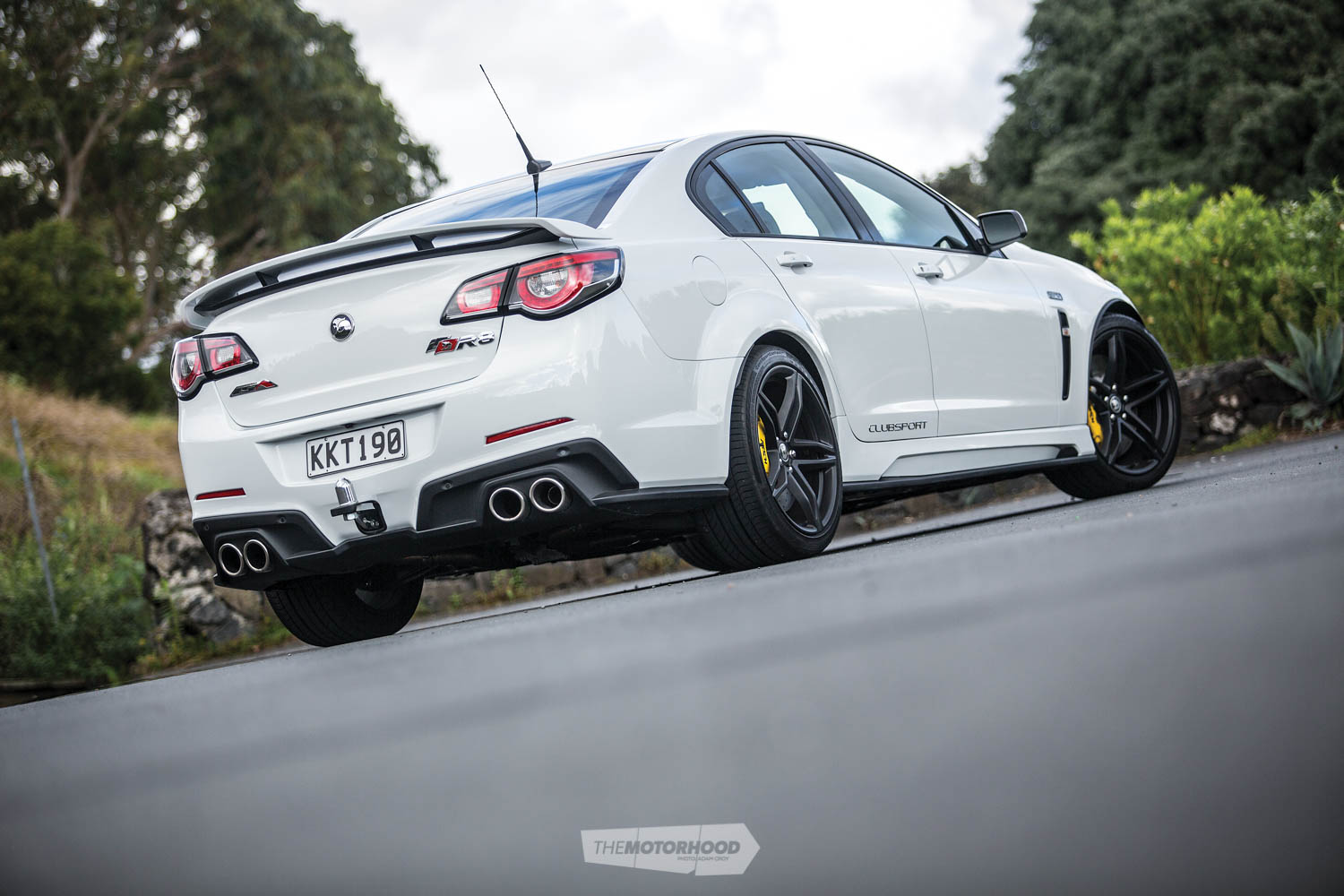
At about this time, as you line up on the grid of your local circuit — because you’d only be using Track mode at the track, of course — you’ll have to begin thinking about how best the HSV Enhanced Driver Interface (EDI) system will help you drive. The lap timer is great, and handy, but if you haven’t frequented your local circuit as much you’d like, it might pay to pull up the map of the track, which will automatically log your laps based on a GPS recognition of the start/stop line. At this stage, the only main Kiwi venue missing from the system is Highlands Motorsport Park in Cromwell, but we understand that an upcoming upgrade will fix this.
So now that your lap times will be recorded automatically, you can concentrate on the job at hand, as well as keeping an eye on the g-forces you’re putting to each corner of the car and how many degrees of oversteer are being created for a different type of race meet. Once you’ve had your fun, simply enable data logging, insert a USB stick into the slot in the glovebox, and you can head straight home for an undoubtedly impressive slide show with the family.Even without this — albeit fun to play with — tricky gadgetry, the 2017 HSV ClubSport R8 LSA ‘30 Years’ is a must drive. The noise at start-up, the planted feeling on the road, and the immediacy of the supercharged V8 culminate in a superb sports sedan more than capable of keeping up with its European foes — and maybe even nailing a few of them to the wall. For the list price of $105,490, the HSV ClubSport R8 LSA ‘30 Years’ is a big look and offers enormous power, comfort, practicality, and build quality to those who are looking for a daily-driver with something just a bit extra.
So instead of bidding farewell, let us celebrate HSV’s 30 years of speed, noise, and fun, and wish it well for the next 30.
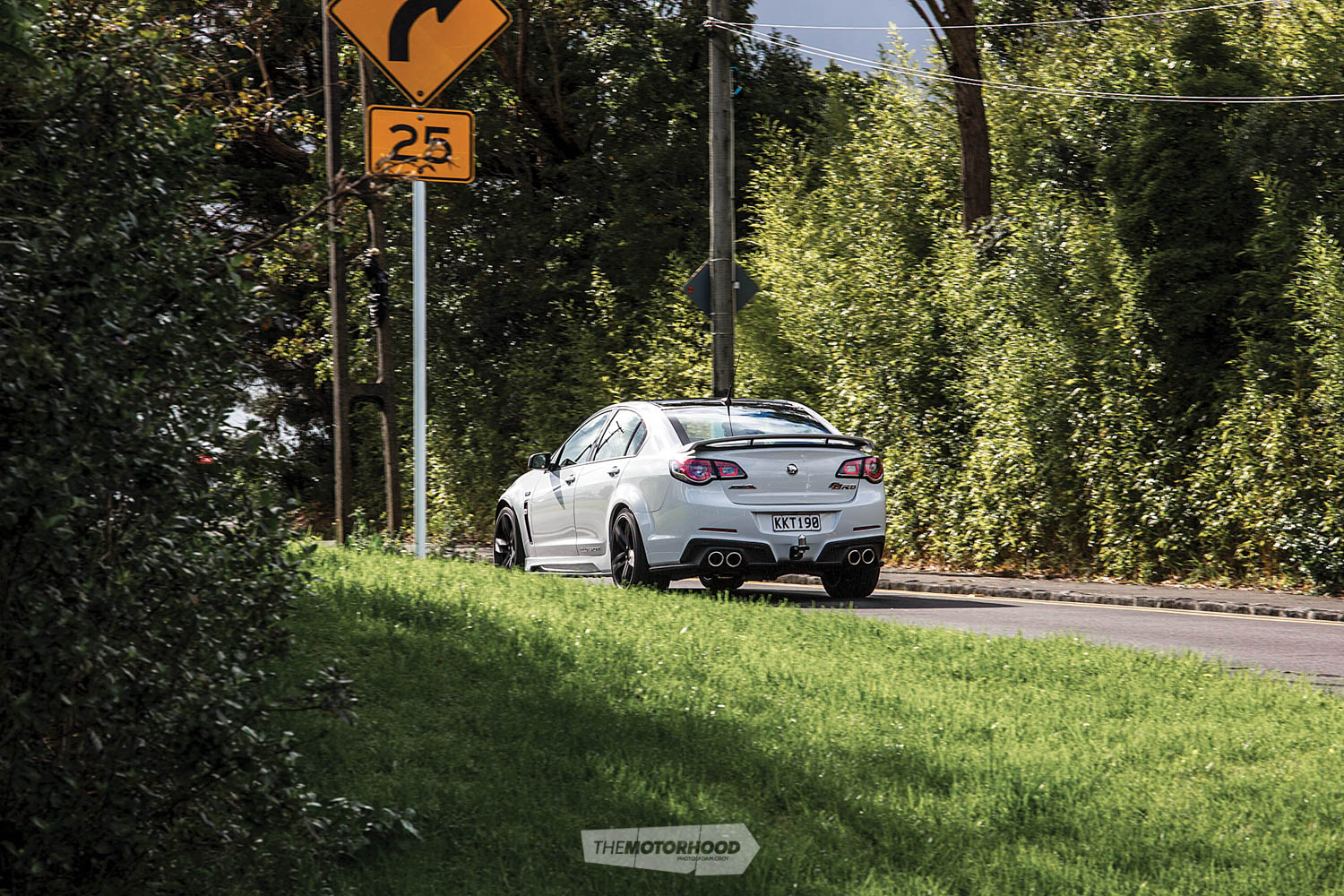
2017 HSV ClubSport R8 LSA ‘30 Years’
Base Price: $105,490
The ClubSport R8 LSA is fitted standard with: HSV LED tail lights; dual-function daytime running lamps; projector headlamps; HSV quad exhaust outlets; HSV Performance body design, including a front fascia splitter and HSV side skirts
As tested: Phantom black roof ($800), 20-inch SV Rimfire forged wheels with fender extensions ($2995), Hyperflow wing spoiler ($895), six-piston brake package ($3995)
Price as tested: $114,175
This article originally appeared in NZ Classic Car issue No. 317. You can purchase a print copy of the magazine at the link below:




